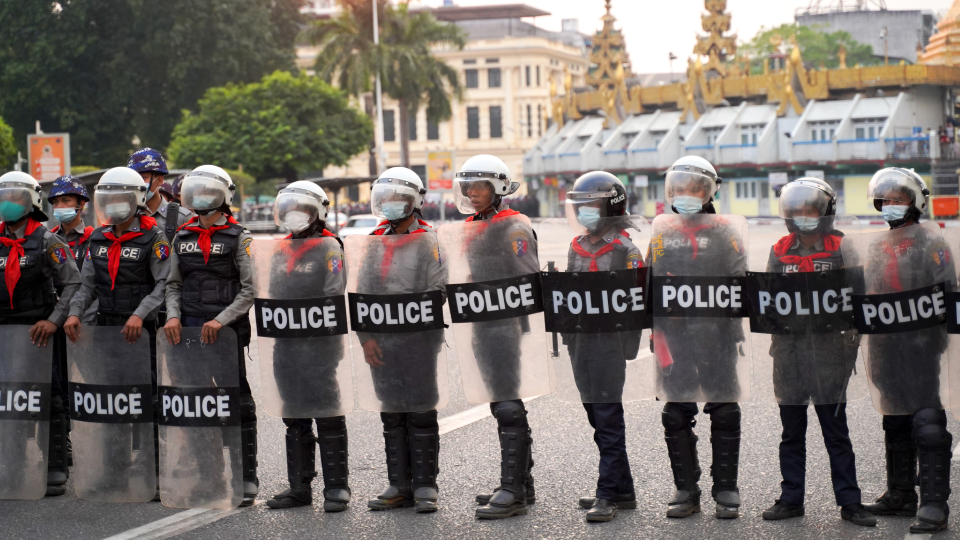Far from sharing the military government’s fears of shrinking territorial control, it’s likely that most among Myanmar’s 55 million people will celebrate the army’s territorial losses. Junta misreads like this are not new – after they seized power in February 2021, the coup leaders indicated surprise when the coup met with widespread outrage and sustained public protest and resistance.
To quell opposition, military bosses have adopted a strategy of arbitrary arrest and extreme violence. The Assistance Association for Political Prisoners estimates 19,675 people are currently jailed – a figure which increases almost daily. Peaceful protests are met with army snipers and shoot-to-kill orders.
Myanmar’s military routinely responds to armed resistance by collectively punishing nearby civilian populations. This has included devastating airstrikes on civilian targets and scorched-earth “clearance operation” campaigns that have killed thousands of people and displaced more than 700,000 more. Rather than cowing the populace, junta violence continues to spur nationwide resistance.
Since September 2021, the National Unity Government (NUG), a shadow government in exile, has authorised a “defensive war” against the state military, pushing for the creation of militias targeting the junta and its economic base. NUG militias have increasingly coordinated with Myanmar’s dozens of ethnic armed groups, many of which have already been fighting the Tatmadaw (the junta’s military) for decades.
Now, every time government troops leave their barracks they face potential attack, causing them to increasingly lean on air power, but further limiting their ability to maintain effective control on the ground. Economic and territorial losses have steadily accumulated.
This is important because the Tatmadaw’s legitimacy depends on its ability to hold the country together. The controversial 2008 military-drafted constitution refers to “non-disintegration” of Myanmar a dozen times, including as a duty of the defence forces. This was a key justification for the 1962 military coup that ushered in five decades of military rule.
During the immediate post-independence period (1948-1962), Myanmar’s civilian government struggled to maintain territorial control, at times controlling little more than major urban centres. The situation is similar now, except that today it is the Tatmadaw that is unable to maintain control beyond urban centres and military barracks. This will hit junta morale badly and inspire further resistance.
Continues at...

For the full article by Ronan Lee, a Doctoral Prize Fellow from the University’s Institute for Media and Creative Industries, visit the Conversation webpage: https://theconversation.com/myanmars-military-junta-appears-to-be-in-terminal-decline-217753
